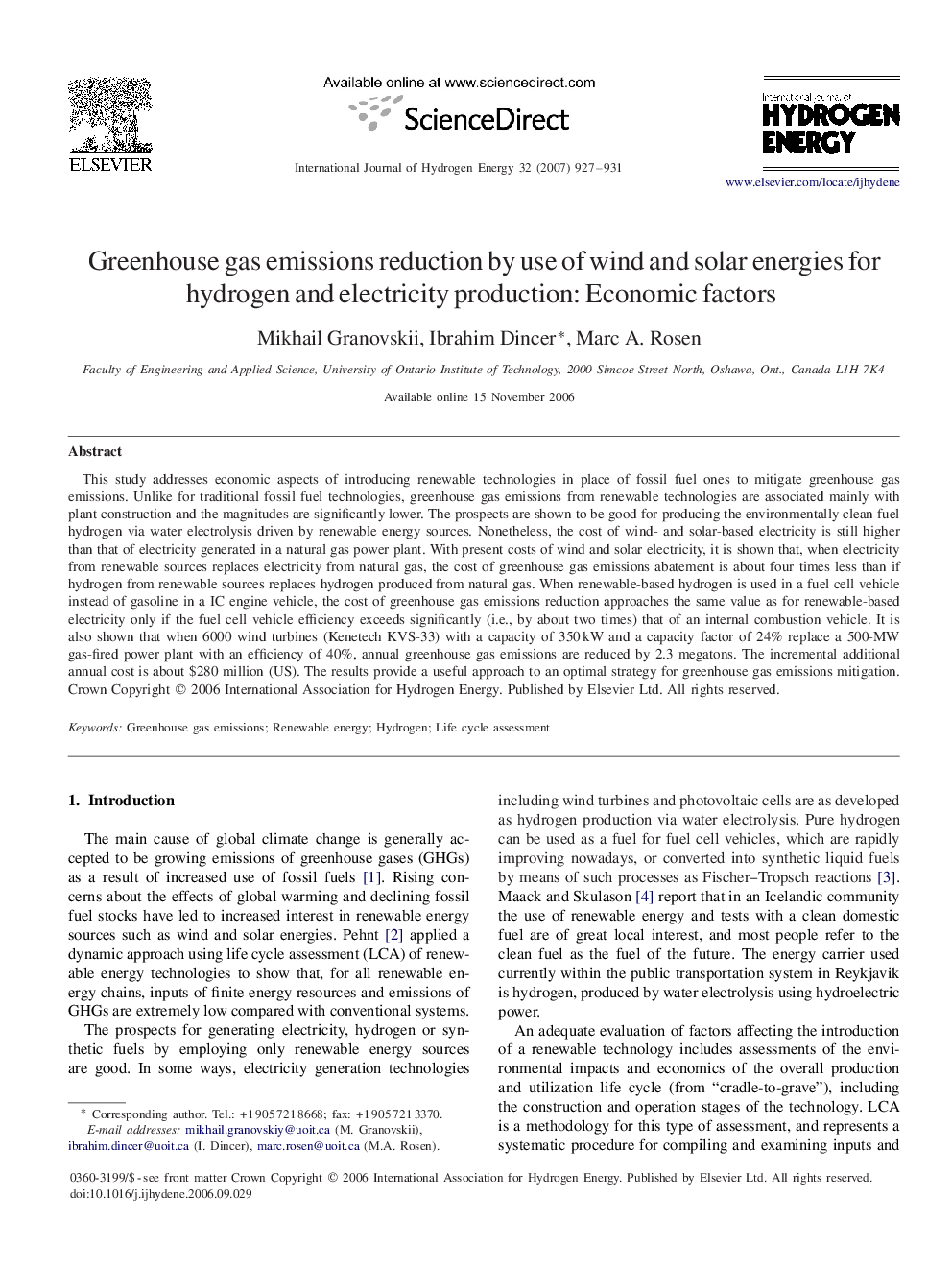| Article ID | Journal | Published Year | Pages | File Type |
|---|---|---|---|---|
| 1280640 | International Journal of Hydrogen Energy | 2007 | 5 Pages |
This study addresses economic aspects of introducing renewable technologies in place of fossil fuel ones to mitigate greenhouse gas emissions. Unlike for traditional fossil fuel technologies, greenhouse gas emissions from renewable technologies are associated mainly with plant construction and the magnitudes are significantly lower. The prospects are shown to be good for producing the environmentally clean fuel hydrogen via water electrolysis driven by renewable energy sources. Nonetheless, the cost of wind- and solar-based electricity is still higher than that of electricity generated in a natural gas power plant. With present costs of wind and solar electricity, it is shown that, when electricity from renewable sources replaces electricity from natural gas, the cost of greenhouse gas emissions abatement is about four times less than if hydrogen from renewable sources replaces hydrogen produced from natural gas. When renewable-based hydrogen is used in a fuel cell vehicle instead of gasoline in a IC engine vehicle, the cost of greenhouse gas emissions reduction approaches the same value as for renewable-based electricity only if the fuel cell vehicle efficiency exceeds significantly (i.e., by about two times) that of an internal combustion vehicle. It is also shown that when 6000 wind turbines (Kenetech KVS-33) with a capacity of 350 kW and a capacity factor of 24% replace a 500-MW gas-fired power plant with an efficiency of 40%, annual greenhouse gas emissions are reduced by 2.3 megatons. The incremental additional annual cost is about $280 million (US). The results provide a useful approach to an optimal strategy for greenhouse gas emissions mitigation.
